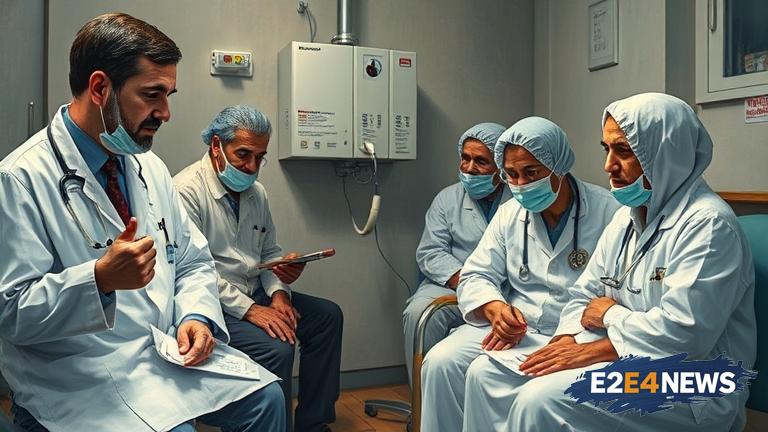The Gaza Strip, a region with a population of over 2 million people, has been under an Israeli blockade for over 15 years, resulting in a severe humanitarian crisis. The healthcare system in Gaza has been particularly affected, with hospitals and medical facilities facing severe shortages of essential supplies, including medicines, equipment, and fuel. US physicians recently read aloud the testimonies of desperate doctors and patients in Gaza, highlighting the devastating impact of the blockade on the region’s healthcare system. The testimonies, which were read aloud at a press conference, described the dire conditions faced by medical professionals and patients in Gaza. Many of the testimonies spoke of the lack of basic medical supplies, including antibiotics, painkillers, and surgical equipment. Others described the difficulties faced by patients in accessing medical care, including the long wait times and the lack of specialized treatment. The physicians who read the testimonies emphasized the need for urgent action to address the humanitarian crisis in Gaza. They called on the international community to pressure Israel to lift the blockade and allow for the free flow of goods and people into and out of the region. The crisis in Gaza has been exacerbated by the COVID-19 pandemic, which has put a strain on the region’s already fragile healthcare system. The pandemic has also highlighted the need for increased cooperation and support from the international community to address the humanitarian crisis in Gaza. Despite the challenges, there are many organizations and individuals working to support the people of Gaza, including medical professionals, aid workers, and human rights activists. These individuals and organizations are working tirelessly to provide medical care, food, shelter, and other essential supplies to those in need. However, much more needs to be done to address the scale and complexity of the crisis. The international community must take immediate action to address the humanitarian crisis in Gaza, including providing emergency aid and working to lift the blockade. The US physicians who read the testimonies of desperate doctors and patients in Gaza emphasized the need for a comprehensive and sustainable solution to the crisis. They called for an end to the blockade and the occupation, and for the establishment of a sovereign and independent Palestinian state. The crisis in Gaza is not just a humanitarian issue, but also a political one. The Israeli blockade is a form of collective punishment, which is illegal under international law. The blockade has also had a devastating impact on the economy and infrastructure of Gaza, with many businesses and industries forced to close due to the lack of supplies and access to markets. The people of Gaza are resilient and determined, but they need the support of the international community to overcome the challenges they face. The US physicians who read the testimonies of desperate doctors and patients in Gaza are just a few examples of the many individuals and organizations working to support the people of Gaza. Their efforts are a testament to the power of solidarity and compassion, and demonstrate that even in the darkest of times, there is always hope for a better future. The crisis in Gaza is a complex and multifaceted issue, requiring a comprehensive and sustainable solution. The international community must work together to address the humanitarian, economic, and political aspects of the crisis, and to support the people of Gaza in their struggle for freedom, justice, and self-determination. The US physicians who read the testimonies of desperate doctors and patients in Gaza have highlighted the need for urgent action to address the crisis. They have also demonstrated the importance of solidarity and compassion in the face of adversity, and have shown that even in the darkest of times, there is always hope for a better future. The people of Gaza will continue to face challenges and hardships, but with the support of the international community, they can overcome them and build a brighter future for themselves and their children. The crisis in Gaza is a reminder of the importance of human rights and international law, and the need for governments and institutions to uphold these principles. The international community must hold Israel accountable for its actions, and work to ensure that the rights of the Palestinian people are respected and protected. The US physicians who read the testimonies of desperate doctors and patients in Gaza have taken an important step in highlighting the crisis and calling for action. Their efforts must be supported and amplified by others, including governments, institutions, and individuals around the world. The crisis in Gaza will not be solved overnight, but with sustained effort and commitment, it is possible to create a better future for the people of Gaza. The US physicians who read the testimonies of desperate doctors and patients in Gaza have shown that even in the darkest of times, there is always hope for a better future. Their actions are a testament to the power of solidarity and compassion, and demonstrate that together, we can make a difference and create a more just and equitable world.
